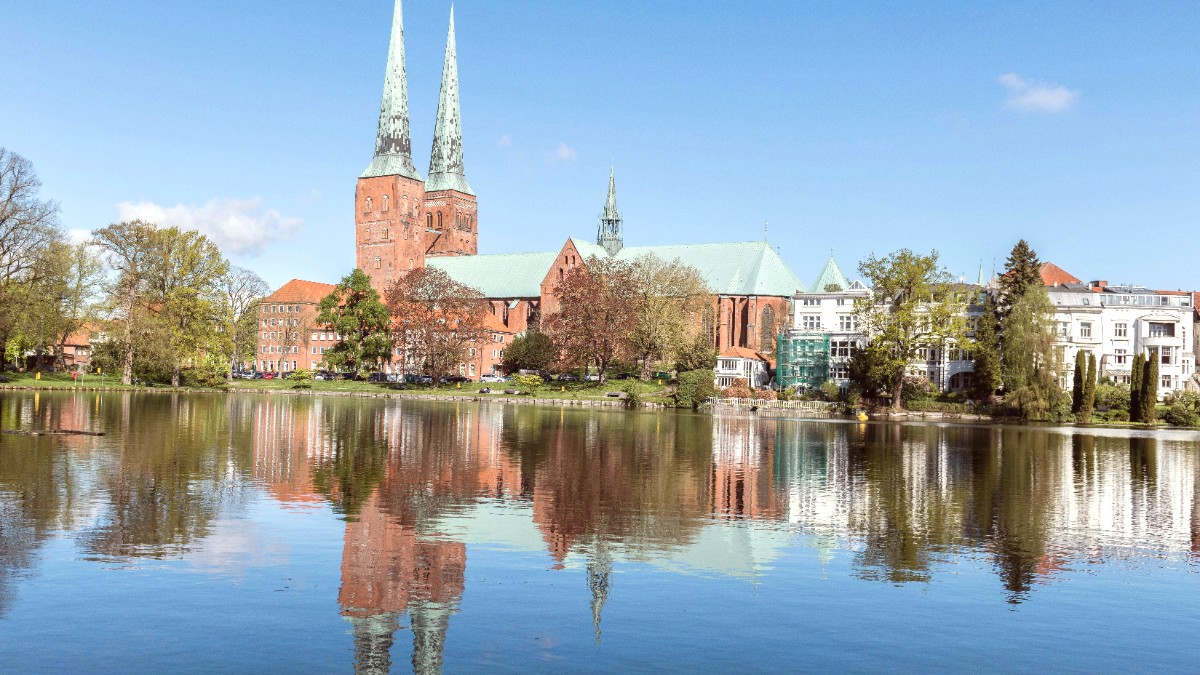
Schleswig Holstein, Germany
Lübeck's cuisine draws heavily from its Hanseatic history, its location near the Baltic Sea, and the agricultural bounty of Schleswig-Holstein. It features hearty, often traditional German dishes with a distinct Northern German touch.
ingredients include fresh fish (herring, cod, plaice), potatoes, various cabbage/root vegetables, pork/beef, and locally sourced fruits. Lübeck Marzipan is a signature sweet, integral to its culinary identity.
Coastal areas like Travemünde have a stronger focus on seafood.
Inland areas feature more meat and potato-based dishes.
Lübeck combines both influences, presenting a diverse culinary experience.
The most famous specialty. This rich almond confection often comes shaped into small loaves ("Marzipanbrot") or decorative figures.
Find it at Niederegger and other confectioneries.
Pan-fried fish, often cod or plaice, served with crispy fried potatoes ("Bratkartoffeln") and a mustard sauce.
A staple in seafood restaurants, especially those near the harbor.
Labskaus: Mashed potatoes, corned beef, onions, beetroot, gherkins, often with fried egg and pickled herring. Lübecker National: Hearty casserole with pork, potatoes, carrots, sometimes prunes.
Look for these in traditional Northern German restaurants.
Enjoy Glühwein, roasted almonds ("Gebrannte Mandeln"), Lebkuchen (gingerbread), Bratwurst, and waffles during December.
Beyond Marzipan, seek out Franzbrötchen, a sweet, cinnamon-flavored pastry available in bakeries.
Lübeck has establishments offering refined culinary experiences.
Numerous options cater to various tastes and budgets, from German to international flavors.
For quick, inexpensive meals or self-catering, various choices are available.
Held on Wednesdays and Saturdays at the market square (Markt) and Thursdays on Buniamshof. Fresh produce, local specialties, and some food stalls are present.
A great spot for fresh, local ingredients and quick bites.
Numerous cafes present cakes, coffee, and light meals. Schrangen, a small indoor market hall, has a few food vendors.
Ideal for a relaxed break or a quick, tasty snack.
Many Italian restaurants are found throughout the Old Town.
Greek cuisine is a popular choice for a sit-down meal.
Döner Kebab shops are ubiquitous for quick, delicious options.
Chinese, Vietnamese, and Japanese restaurants are also available.
Awareness of gluten-free ("glutenfrei") and other allergens continues to grow in Germany. Many menus indicate common allergens.
Inform your server about specific allergies by saying: "Ich habe eine Allergie gegen..." (I have an allergy to...).
Carry a Translation card for severe allergies. Larger supermarkets stock gluten-free products.
Look for apps like HappyCow for vegetarian and vegan restaurant listings.
Supermarkets present a good choice for picking up groceries or pre-made salads, especially if you have specific preferences.
Many cafes also feature lighter meal options suitable for various diets, from sandwiches to pastries.
Local cooking schools or specialized tour operators may offer short workshops focusing on Northern German cuisine or marzipan production and decoration.
The surrounding Schleswig-Holstein region features many farms and local producers.
Fewer formal programs exist, but interacting with locals in bakeries, cafes, and markets for authentic interaction.
An absolute must-visit for marzipan lovers. This establishment features a vast selection of marzipan products, a café with marzipan-themed cakes, and a small marzipan museum (free entry).
Experience the heart of Lübeck's sweet heritage.
Dining in places like Schiffergesellschaft presents an unique historical atmosphere, transporting you back centuries.
Savor traditional cuisine in a setting full of stories.
Explore traditional German beverages like local beers, various fruit brandies (Schnaps), and non-alcoholic options like Fassbrause (a fermented lemonade-like drink).
In autumn, look for hearty stews, game dishes, and pumpkin specialties, reflecting the seasonal bounty of the region.
"Spargel" (white asparagus) dishes hold high celebration from April to June, a prime season for this prized vegetable.
Lübeck's culinary landscape blends historical tradition with modern tastes, offering something for every palate.